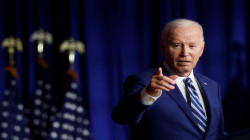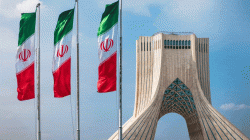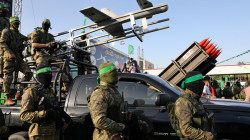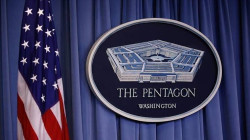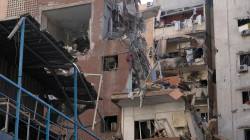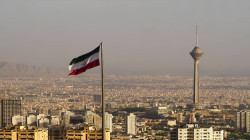Seven reasons explaining Iran's abandonment of Hamas
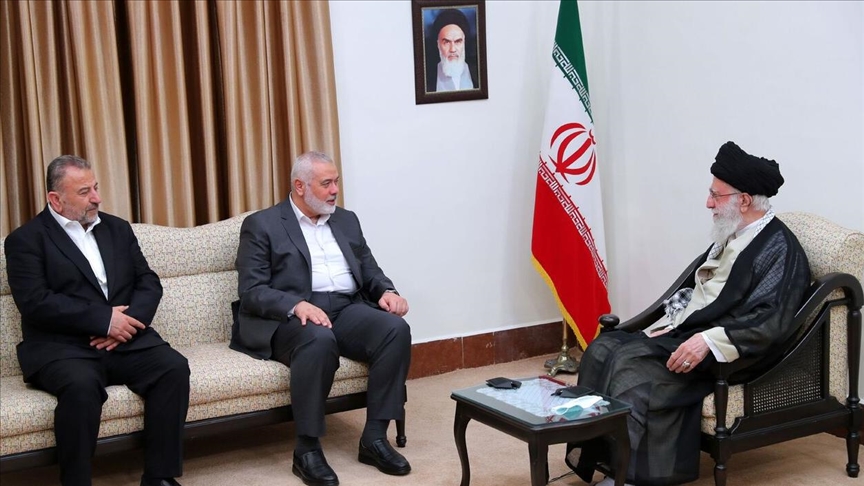
Shafaq News / The American magazine "Foreign Policy" addressed Iran's stance regarding the ongoing conflict between Israel and Gaza, which hinted at a potential direct confrontation between Tehran and Tel Aviv. Despite Iranian officials' efforts to persuade Supreme Leader Ali Khamenei to support Hamas in the conflict, the likelihood of a broader regional war remains low. Iran's strategic thinking appears more cautious than its slogans.
The magazine highlighted at least seven reasons suggesting Iran's inclination to avoid initiating a war with Israel on behalf of Hamas.
Firstly, the report noted that Iran could not mobilize the Iranian population for engagement in a new war as it did during the Iraq war in the 1980s when continuous recruitment of human waves among other factors resisted the Iraqi army, forcing Baghdad to withdraw from Iranian territories.
The report added that after decades, the society's support for the political regime declined, referencing recent protests and the economic crisis partly caused by Washington-led sanctions, leading to increased discontent among the youth and the middle class in Iran.
Secondly, the moderate faction within the Iranian government cautioned against direct Iranian involvement in the war, indicating that the conflict in Gaza deepened political rifts in Tehran.
According to estimations by Iranian hardliners, Hamas's destruction is inherently linked to the subsequent collapse of Hezbollah and, ultimately, a military attack on Iran. Therefore, they support targeting American bases in Iraq and Syria by Iran's proxies.
However, this opinion significantly contradicts the viewpoint held by moderate officials, especially Foreign Minister Zarif, who consistently warned against the destructive consequences of potential Iranian engagement in a war with the United States.
Former Iranian Foreign Minister Mohammad Javad Zarif suggested that if Iran takes a more extreme stance on Gaza, it could provoke a lethal conflict with the United States, a scenario welcomed by Israel.
Thirdly, the report pointed out that Israel's apparent failure to deter Hamas's attack on October 7 did not alter Iran's strategic calculations towards Israel. Despite Israel's reliance on highly technological defense systems like the Iron Dome, Hamas managed to inflict significant military and intelligence blows, shattering Israel's long-standing deterrence strategy.
The report suggested that despite Hamas disrupting Israel's deterrence strategy, it does not provide Iran with an opportunity to challenge Israel using missile force.
On the contrary, Iran might perceive that Israel feels the urgency to restore deterrence, a priority essential for which Israel might be willing to take exceptional military or political risks.
Contrary to common opinion, neither Hamas nor even Hezbollah are mere Iranian proxies. It is more accurate to consider them as Iran's allies as non-governmental entities. Although Hamas aligns its actions with Iran, its approach may differ, as notably seen during the Syrian Civil War when Hamas supported Sunni rebels opposing Syrian President Assad.
Furthermore, the strategic partners of Iran, Moscow and Beijing, have not expressed full support for Hamas. Iran aims to ally with China and Russia as part of its eastward-looking policy, hence would not seek to spoil its relationship with these two nations.
Iran follows a policy in Gaza similar to its wait-and-see approach observed by China and Russia when the Taliban took Kabul two years ago, seeking to avoid isolation in major international crises.
Another crucial factor influencing Iran's reluctance to engage in war is Supreme Leader Khamenei's specific outlook on regional conflicts. Unlike Western perceptions, he handles responses to regional conflicts pragmatically rather than ideologically.
The report indicated that these interconnected reasons explain Iran's hesitance to engage in a war on behalf of Hamas. Moreover, the conflict in Gaza might accelerate Iran's nuclear program. Strong voices within Tehran, mostly from the hardline camp, consider Iran's ultimate trump card to prevent Hamas's destruction relies on its pursuit of complete nuclear capabilities. They believe Iran's winning move lies in its threat to develop nuclear weapons and demonstrate vital support to its allies, akin to its past support for Assad's government in Syria.
In conclusion, the Foreign Policy suggested that this does not imply Iran is willing to abandon Hamas, representing Iran's strategic asset in Gaza. Instead of standing idly, Tehran is likely to continue exerting pressure on both Israel and the United States through Hezbollah and its proxies in Iraq and Syria, without escalating the conflict into a broader regional war.
